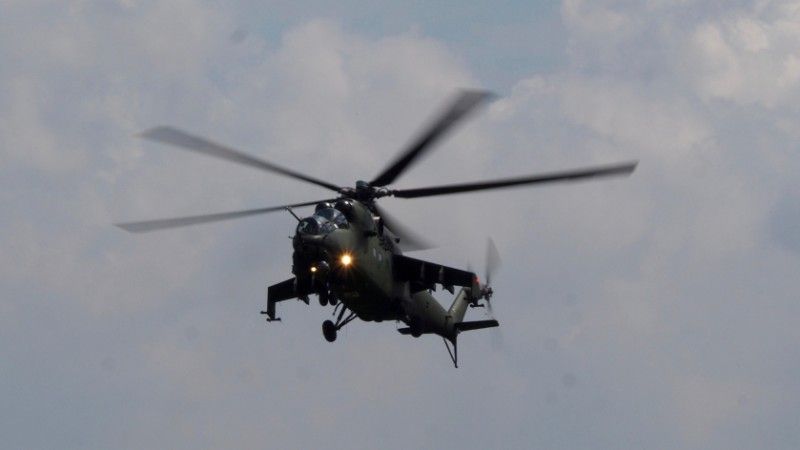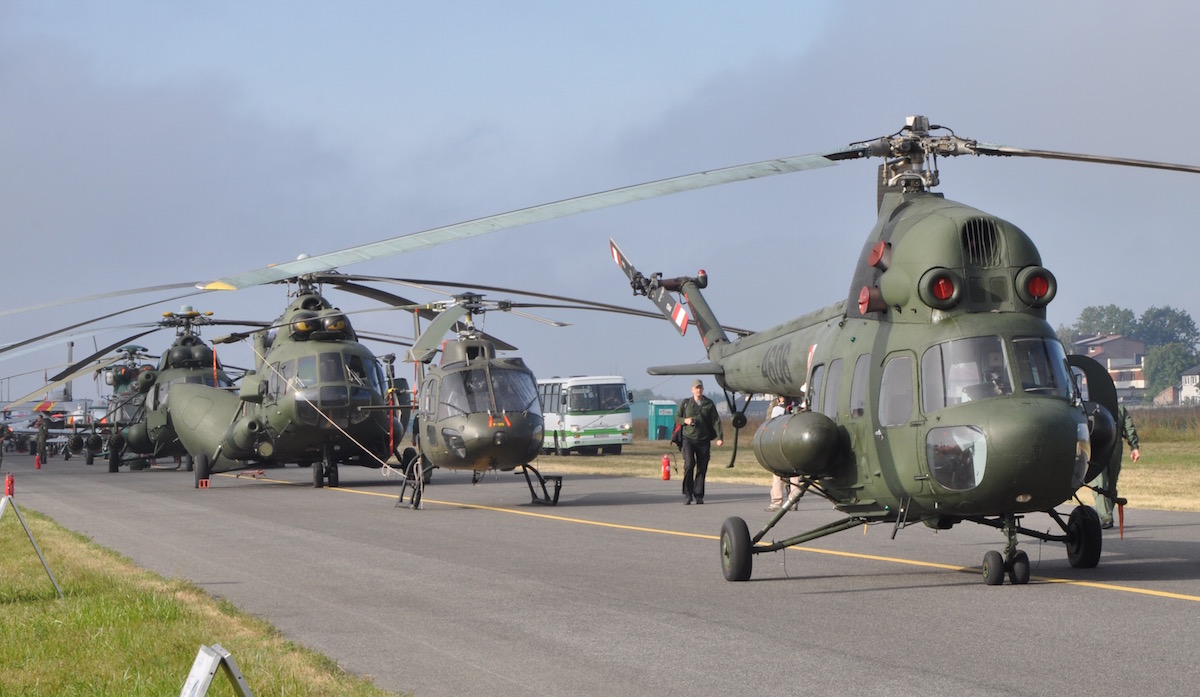Strona główna
“Kruk” Procurement Imminent? “Combat Support Helicopters” in the Technical Modernization Plan

The new Technical Modernization Plan adopted by the Polish Ministry of Defence assumes that procurement of helicopters capable of fighting the enemy armour shall be one of the priorities.
The MoD confirmed the recent declarations made by the head of the MoD, concerning the Kruk platform being one of the primary tasks. As we were informed by the Press Department at the Operational Centre of the Polish Ministry of Defence responding to Defence24.pl question concerning the new helicopter acquisitions, procurement of “two Kruk attack helicopter squadrons for the Land Forces and further helicopters for the Polish Navy” has been defined as a current priority.
Czytaj też: Poland to spend USD 133 Billion on Modernization of the Armed Forces. New F-16 To Be Ordered
Kruk programme is aimed at introducing the Mi-24 replacement in the Polish military. The latter aircraft would undergo modernization. The upgrade is necessary to maintain and recover capabilities, before the new platform is introduced and becomes fully integrated within the inventory. The matter in question is a subject of an ongoing technical dialogue. The industry, meanwhile, is getting ready for the project. This may be exemplified by stress tests of one of the airframes, ordered by the Air Force Institute of Technology at PZL Świdnik.
The MoD declares that the Kruk programme has been viewed as a priority since 2017. Back then, according to the SPO (Strategic Defence Review) recommendations, it was decided to shift the helicopter fleet modernization priority to the attack platforms. Earlier on the primary emphasis had been placed on multi-role/transport helicopters. The SPO document recommendations suggested that the attack helicopters quantity is higher when compared to the current status, and to the original plans (30 platforms). The previous edition of the Technical Modernization Plan (Plan Modernizacji Technicznej - PMT) envisaged delivery of a single attack helicopter squadron until 2026 and two squadrons were to be procured in total, according to the statements made by Vice-Minister Skurkiewicz in May this year. If that assumption remained in force this would mean that, keeping the anti-tank capabilities high on the priority list, the potential offered by the Kruk platform would need to be complemented by other combat-capable aircraft.
Role as such could potentially be assigned to close support helicopters. Polish Ministry of Defence did not disclose any details pertaining to the helicopter procurement (Kruk and Navy acquisitions), hiding behind the confidential profile of the new PMT. The Ministry only defined the priorities adopted. However, the authorities disclosed the name of the operational programme concerning the helicopters: “Combat support, support and VIP helicopters”. The name is identical to the one used in the 2013-2022 edition of the Technical Modernization Plan. Same thing may be said with regards to most of the programmes the new document defines.
In practical terms the above means that the Plan also includes other helicopter procurement initiatives, support/multi-role and transport platforms included. The Polish Ministry of Defence already carried out the preliminary analysis pertaining to the light/medium helicopter acquisition, the Perkoz programme. The project in question is aimed at replacement of the Mi-2 helicopter and complement the fleet of the Sokół family aircraft that is burdened with increasingly more significant workload.
The former PMT document covering the period until 2026 did not include this task. It was decided to focus on other priorities. Mi-2 helicopters need to be replaced anyway, during the period covered by the new plan. This applies to most of the fleet. The situation is pretty much similar in case of the Mi-8 helicopters that were procured in the early 1980s. If medium multi-role helicopters are acquired over the course of the Perkoz programme, then these aircraft could take over a majority of the tasks assigned to Mi-8 now. At the same time the Perkoz platform could also be employed in anti-tank role, following the potential integration of anti-tank weapons. Mi-2 helicopters were originally employed in that role, along with the Malyutka ATGM.

Procurement projects pertaining to the Kruk platform and to the support helicopters may be interconnected. If the Polish Ministry of Defence decides to acquire a higher quantity of multi-role helicopters with heavy armament, anti-tank armament included, then, after the aforesaid two Kruk squadrons are delivered, the priority may shift to the support aircraft. It is also possible that multi-role helicopters would be, at least for some time, acquired in parallel to implementation of the Kruk programme.
The MoD still needs to define the mode ascribed to the Kruk programme, to define the manner of procurement. This would determine the type that is going to become a subject of the acquisition. It is possible that FMS option would be used. Two options exist here: AH-64E Apache Guardian and AH-1Z Viper. Even though Guardian has always been seen as a stronger contender, Viper has also become an interesting proposal following the Czech Republic’s decision to acquire a “tandem” solution involving Venom and Viper platforms. At the moment both offers are a subject to serious consideration. Leonardo also placed its offer on the table: participation of the Polish industry in the AW249 development programme. Should Poland decide to procure this platform, not only would the PZL-Świdnik facility be involved in the project, as the PGZ Group’s companies could also receive relevant proposals within the aforesaid scope.
There is one more open question that remains to be answered. Here we are referring to procurement of heavy transport helicopters. Navy helicopter procurement has been listed among the priorities by the MoD, responding to the questions we have been asking. Here acquisition of further AW101 helicopters or procurement of lighter aircraft that would be embarked can be listed among the potential scenarios. Earlier this year it was assumed that acquisition of the latter would be conditioned by the Navy having a proper surface combatant at its disposal, remaining able to accommodate operations of an embarked helicopters. And the above is conditioned with finalization of the Miecznik programme.
Hence, the new Technical Modernization Plan still treats the helicopters that would offer anti-tank capabilities with a high priority. This goal should also be supported by the decision to modernize the Hind platform, allowing for a faster recovery of capabilities. The modernization timeline covering the period until 2035 would also envisage a much broader scope of helicopter replacement.
